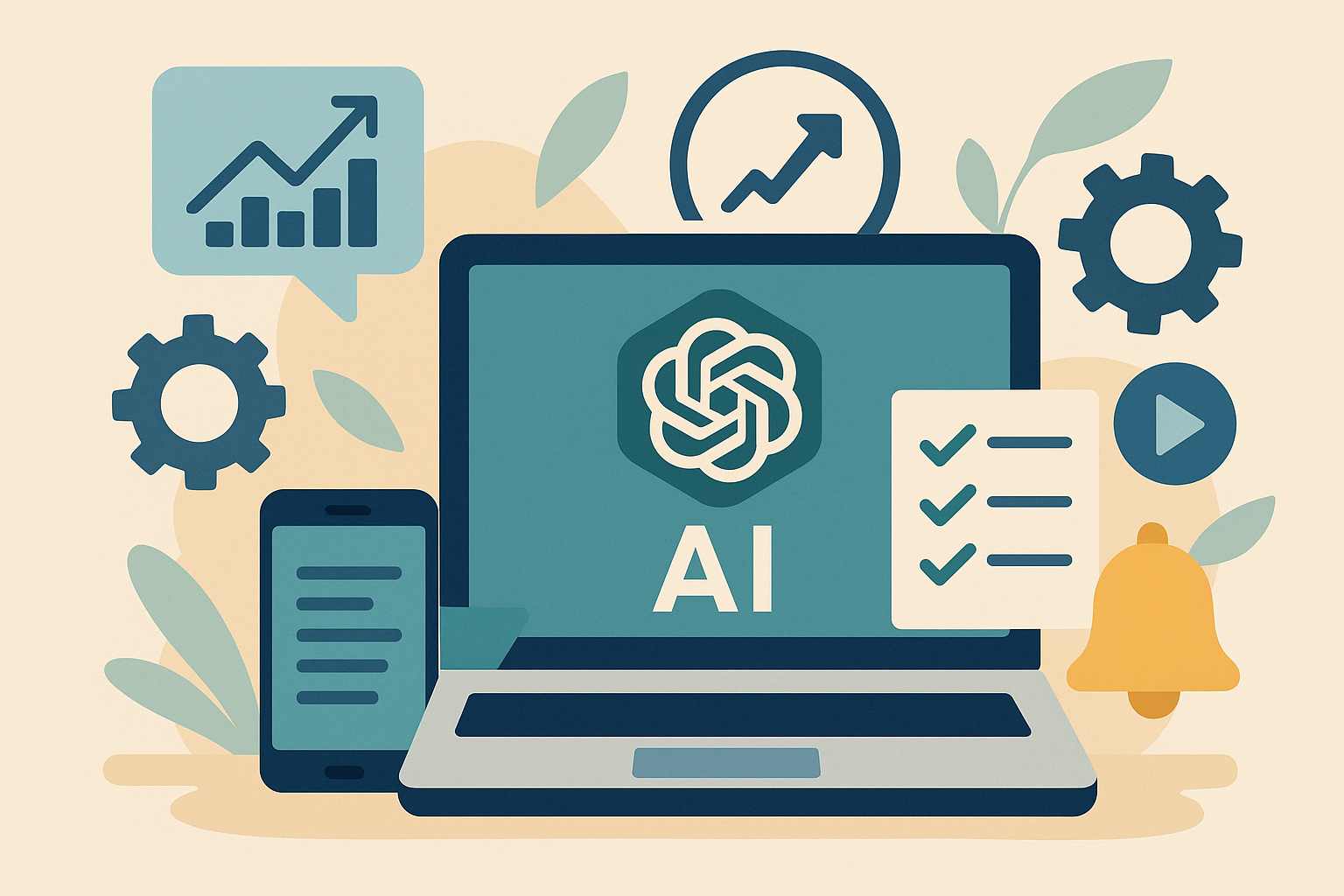The rapid evolution of artificial intelligence has revolutionized multiple industries, and customer service is no exception. According to TechmateTech LLC, this transformation is significantly impacting e-commerce, with businesses increasingly adopting AI-powered solutions to enhance their customer support.

E-commerce automation is becoming the norm, with chatbots in retail being used to provide 24/7 customer support, improving response times, and reducing the need for human agents. This shift is driven by the benefits of AI, including cost savings and enhanced customer experience.
Key Takeaways
- The rise of AI is transforming customer support in e-commerce.
- Chatbots are being used to improve customer service and reduce costs.
- E-commerce businesses are adopting AI-powered solutions for 24/7 support.
- AI is enhancing customer experience through faster response times.
- The use of AI in customer support is becoming increasingly prevalent.
The Customer Service Crisis in E-Commerce
The customer service landscape in e-commerce is in disarray, with consumers experiencing long wait times and businesses scrambling to adapt. For decades, businesses have struggled to balance customer support quality with operational efficiency, according to recent studies.
The Frustration of Long Wait Times
Long wait times have become a significant source of frustration for e-commerce customers. Studies have shown that prolonged wait times can lead to increased customer dissatisfaction, negative reviews, and ultimately, loss of business.
In the digital age, customers expect immediate responses to their inquiries. The inability to receive timely support can be a significant deterrent, causing customers to abandon their shopping carts or seek services from competitors.
Rising Customer Expectations in the Digital Age
Customer expectations have skyrocketed in the digital era. Consumers now anticipate not only fast responses but also personalized support. The challenge for e-commerce businesses lies in meeting these heightened expectations while maintaining operational efficiency.
As e-commerce continues to grow, the need for effective customer service solutions becomes increasingly critical. Businesses must adapt to these changing expectations to remain competitive.
Traditional Customer Support Models: A System Under Strain
The human-centered approach to customer support has been the norm, but it’s facing significant challenges. Handling customer queries with live agents is resource-intensive, as noted in recent studies. This traditional model relies heavily on human customer support agents to resolve issues, which can lead to inefficiencies.

The Human-Centered Support Workflow
In traditional customer support models, the workflow is typically centered around human agents. These agents handle customer inquiries via various channels such as phone, email, or chat. The process involves:
- Receiving and assessing customer queries
- Providing initial responses or solutions
- Escalating complex issues to higher-level support teams
This human-centered workflow, while effective in many ways, has its limitations. It can be time-consuming and may lead to inconsistent customer experiences due to the variability in human response.
Escalation Protocols and Their Limitations
Escalation protocols are critical in traditional customer support models. They ensure that complex issues are addressed by more experienced or specialized agents. However, these protocols have several limitations:
- They can be slow, leading to prolonged resolution times.
- They may not always result in a satisfactory resolution, as the issue might be transferred multiple times.
- The process can be frustrating for customers, leading to a negative experience.
These limitations highlight the need for more efficient and effective customer support solutions. As customer expectations continue to evolve, traditional models must adapt to remain relevant.
Key Challenges Facing Human Customer Service Teams
The role of human customer service teams is becoming increasingly complex in e-commerce. As the industry continues to evolve, these teams face a multitude of challenges that impact their efficiency and effectiveness.
Cost Implications of Human Support
One of the primary concerns for e-commerce businesses is the cost associated with maintaining human customer service teams. The expenses include salaries, training, and infrastructure, which can be substantial. According to recent studies, the average cost per contact for human customer support can range from $6 to $15, depending on the complexity of the issue.
Reducing these costs without compromising service quality is a significant challenge. Businesses are continually looking for ways to optimize their support operations while keeping expenses in check.
Scalability
Scalability is another major issue for human customer service teams. As businesses grow, their customer support needs increase, making it difficult to scale human teams quickly enough to meet demand. Hiring and training new staff takes time, and during peak periods, this can lead to delays in response times.
Response Time Bottlenecks
Response time is critical in customer service, with customers expecting quick resolutions to their queries. Human customer service teams often struggle with managing response times, especially during periods of high volume. Long wait times can lead to customer dissatisfaction and negatively impact brand reputation.
The Human Error Factor
Lastly, human error is an inherent risk in customer service. Despite training, human customer service representatives can make mistakes, such as providing incorrect information or mishandling customer complaints. These errors can lead to further complications and damage to customer trust.
In conclusion, human customer service teams face significant challenges, from cost implications and scalability issues to response time bottlenecks and the potential for human error. Addressing these challenges is crucial for delivering high-quality customer support in the e-commerce sector.
The Modern Customer’s Expectations: What Shoppers Demand
Customer expectations are at an all-time high, with shoppers now anticipating round-the-clock support and instant responses. The modern customer demands a seamless shopping experience, and customer support is a critical component of this journey.
The 24/7 Availability Requirement
In today’s digital age, customers expect businesses to be available 24/7. This means having support systems in place that can cater to their needs at any time, without the constraints of traditional business hours. AI-powered chatbots are increasingly being used to meet this expectation, providing customers with the support they need, whenever they need it.
The Need for Speed: Response Time Statistics
Response time is another critical factor in customer satisfaction. Customers appreciate chatbots for their speed and convenience, especially for simple queries. According to recent statistics, customers expect responses within minutes, not hours or days. This need for speed is driving the adoption of AI-powered support tools that can respond quickly and efficiently.

Personalization Without the Wait
Personalization is no longer a nice-to-have; it’s a must-have. Customers expect businesses to understand their preferences and tailor their support experiences accordingly. AI-driven support systems can analyze customer data to provide personalized recommendations and support, all without the need for human intervention.
By understanding and meeting these modern customer expectations, businesses can improve customer satisfaction, drive loyalty, and ultimately stay ahead in the competitive e-commerce landscape.
AI in E-Commerce Customer Support AI Chatbots in Retail E-Commerce Automation
The integration of AI in e-commerce customer support has revolutionized the way businesses interact with their customers. This shift is driven by the need for faster, more efficient, and personalized support services.
The Evolution of Customer Service Technology
Customer service technology has come a long way from traditional call centers and email support. The advent of AI has enabled businesses to provide 24/7 support without the need for human intervention. According to recent data, “AI-powered chatbots have grown in popularity due to their ability to respond instantly, handle multiple queries at once, and operate 24/7 without fatigue.”
How AI Is Transforming the Support Landscape
AI is transforming the support landscape by providing personalized experiences and improving response times. Chatbots and virtual assistants are being used to handle a wide range of customer queries, from order tracking to product recommendations.
| Support Feature | Traditional Support | AI-Powered Support |
|---|---|---|
| Availability | Limited hours | 24/7 |
| Response Time | Variable, often slow | Instant |
| Personalization | Limited | Highly personalized |
The Rise of the Machines: Adoption Statistics
The adoption of AI in customer support is on the rise. Statistics show that a significant number of businesses are now using AI-powered chatbots to handle customer queries. This trend is expected to continue as businesses look for ways to improve their customer support services.
- Over 80% of businesses plan to implement AI-powered chatbots by 2025.
- AI-powered support tools have reduced customer support costs by up to 30%.
- The global chatbot market is expected to grow by 25% annually.
Types of AI Support Tools Reshaping Retail
The advent of AI support tools is changing the landscape of retail customer service. These tools are designed to enhance customer experience, improve response times, and reduce operational costs.
Text-Based Chatbots
Text-based chatbots are AI-driven programs that simulate human conversation through text or chat commands. They are widely used in e-commerce to provide immediate support to customers, answering queries, and helping with transactions.
Key Features of Text-Based Chatbots:
- 24/7 Availability
- Instant Responses
- Personalized Recommendations
- Multi-Language Support
Voice-Activated Virtual Assistants
Voice-activated virtual assistants are revolutionizing customer support by allowing customers to interact with businesses using voice commands. This technology is becoming increasingly popular with the rise of smart speakers and voice-enabled devices.
Benefits of Voice-Activated Virtual Assistants:
- Hands-Free Interaction
- Enhanced Accessibility
- Personalized Experience
- Efficient Customer Support
Omnichannel AI Solutions
Omnichannel AI solutions provide a seamless customer experience across multiple channels, including social media, email, chat, and voice. These solutions ensure that customer interactions are consistent and personalized, regardless of the channel used.
| AI Support Tool | Key Features | Benefits |
|---|---|---|
| Text-Based Chatbots | 24/7 Availability, Instant Responses, Personalized Recommendations | Improved Customer Satisfaction, Reduced Support Costs |
| Voice-Activated Virtual Assistants | Hands-Free Interaction, Enhanced Accessibility, Personalized Experience | Increased Customer Engagement, Enhanced Brand Loyalty |
| Omnichannel AI Solutions | Consistent Experience, Personalized Interactions, Multi-Channel Support | Improved Customer Retention, Enhanced Operational Efficiency |

Common Customer Service Tasks Now Handled by AI
E-commerce businesses are leveraging AI to automate various customer service tasks, enhancing efficiency and customer satisfaction. This shift towards automation is not only improving response times but also allowing human customer support agents to focus on more complex issues.
Automated Order Tracking Systems
One of the most significant advancements in AI-driven customer service is the implementation of automated order tracking systems. These systems enable customers to track their orders in real-time without needing to contact a human support agent. According to a recent study, “AI chatbots can handle routine customer queries, provide instant responses, and assist with tasks like booking appointments or tracking orders.”
“The use of AI in customer service has transformed the way businesses interact with their customers, making it more efficient and personalized.”
Automated order tracking reduces the workload on human support agents and provides customers with immediate updates on their order status.
Refund Processing Without Human Intervention
AI is also being used to streamline refund processing. Advanced algorithms can now handle refund requests without human intervention, ensuring faster processing times and reducing the potential for human error. This not only improves customer satisfaction but also reduces operational costs for businesses.
| Task | Human Processing Time | AI Processing Time |
|---|---|---|
| Refund Processing | Several Days | Instantaneous |
| Order Tracking | Several Hours | Real-time |
AI-Powered Product Recommendations
AI-powered product recommendations are another area where customer service is being revolutionized. By analyzing customer data and behavior, AI systems can suggest products that are likely to be of interest to the customer, enhancing their shopping experience.
Complaint Resolution Through Machine Learning
Machine learning algorithms are being used to resolve customer complaints more effectively. These systems can analyze the nature of the complaint and provide appropriate responses or solutions, often resolving issues without the need for human intervention.
By automating routine customer service tasks, businesses can improve efficiency, reduce costs, and enhance customer satisfaction. As AI technology continues to evolve, we can expect to see even more innovative applications in the realm of customer service.
The Undeniable Benefits of AI Chatbots in Retail
The integration of AI chatbots in retail has revolutionized customer support, offering numerous benefits that enhance both customer experience and operational efficiency. As retailers continue to adopt these technologies, the advantages are becoming increasingly apparent.
Never Closed: The Power of 24/7 Support
One of the most significant benefits of AI chatbots is their ability to provide 24/7 customer support without interruption. Unlike human customer support agents who require rest, AI chatbots can operate around the clock, ensuring that customer inquiries are addressed at any time. This is particularly valuable in the retail sector, where customers often shop online at various hours of the day.
For instance, a customer browsing products on a retailer’s website at midnight can receive immediate assistance from an AI chatbot, enhancing their shopping experience and potentially increasing sales.
Lightning-Fast Response Times
AI chatbots are also renowned for their lightning-fast response times. Unlike human agents who might take minutes or even hours to respond, AI chatbots can answer customer queries in real-time. This rapid response capability is crucial in today’s fast-paced retail environment, where customers expect quick answers to their questions.
- Instant responses to customer inquiries
- Reduced wait times for customers
- Improved customer satisfaction due to quick resolutions
Significant Cost Reductions for Retailers
Implementing AI chatbots can lead to significant cost reductions for retailers. By automating routine customer support tasks, retailers can decrease their reliance on human customer support agents, thereby reducing labor costs. According to recent data, “AI chatbots can resolve a large portion of routine questions at a fraction of the cost,” making them a cost-effective solution for retailers.

Personalization at Scale Through Data Analysis
AI chatbots can also enable personalization at scale by analyzing customer data and tailoring their responses accordingly. By leveraging customer interaction data, AI chatbots can offer personalized product recommendations, enhancing the shopping experience and potentially driving additional sales.
- Analysis of customer interaction data
- Personalized product recommendations
- Enhanced customer experience through tailored interactions
In conclusion, the benefits of AI chatbots in retail are multifaceted, ranging from 24/7 support and rapid response times to significant cost savings and personalized customer experiences. As the retail landscape continues to evolve, the adoption of AI chatbots is likely to become even more widespread, driving further innovation and efficiency in customer support.
Pro Tip: Best AI Chatbot Tools for E-Commerce in 2025
As e-commerce continues to evolve, businesses are turning to AI chatbot tools to enhance customer service. Companies like Vodafone and Klarna have successfully implemented AI chatbots to improve customer service, setting a precedent for other businesses.
The market offers a range of AI chatbot tools tailored to different business needs. When selecting a tool, it’s essential to consider factors such as scalability, integration capabilities, and cost.
Enterprise-Level Solutions
For large enterprises, AI chatbot tools like IBM Watson Assistant and Microsoft Bot Framework offer robust solutions that can handle complex customer service tasks. These platforms provide advanced features such as natural language processing and machine learning capabilities.
- IBM Watson Assistant offers omnichannel support and advanced analytics.
- Microsoft Bot Framework provides a comprehensive set of tools for building custom chatbots.
Mid-Market AI Support Platforms
Mid-market businesses can benefit from AI chatbot tools like Drift and Intercom. These platforms offer a balance between features and cost, making them ideal for growing businesses.
- Drift offers conversational marketing and sales capabilities.
- Intercom provides personalized customer support through AI-driven chatbots.
Budget-Friendly Options for Small Businesses
Small businesses can start with budget-friendly AI chatbot tools like ManyChat and Tawk.to. These platforms offer essential features at an affordable price, helping small businesses improve customer service without breaking the bank.
- ManyChat offers a user-friendly interface for creating chatbots.
- Tawk.to provides a free chatbot solution with optional paid upgrades.
By choosing the right AI chatbot tool, e-commerce businesses of all sizes can enhance customer service, reduce costs, and stay competitive in the market.
Real-World Success Stories: AI Customer Support in Action
AI customer support is no longer a futuristic concept; it’s a reality that’s transforming the retail landscape. Many e-commerce businesses are now leveraging AI to enhance their customer service, leading to significant improvements in efficiency and customer satisfaction.
How Amazon Revolutionized Support Automation
Amazon has been at the forefront of AI adoption in customer support. By implementing AI-powered chatbots, Amazon has significantly reduced the need for human intervention in customer inquiries. This shift has not only improved response times but also allowed human customer support agents to focus on more complex issues that require a personal touch.
Key Benefits: Faster response times, improved customer satisfaction, and reduced operational costs.
Shopify Brands Embracing AI Assistance
Shopify brands are also embracing AI to enhance their customer support. By integrating AI chatbots into their customer service platforms, these brands are able to provide 24/7 support to their customers, improving overall customer experience and loyalty.
Case Study: A notable Shopify brand saw a 30% reduction in customer support queries after implementing an AI-powered chatbot, allowing them to reallocate resources to other areas of their business.
Before and After: Metrics That Matter
The impact of AI customer support can be measured through various metrics, including cost savings, customer satisfaction scores, and response times. Let’s examine some data to understand the effectiveness of AI in customer support.
| Metric | Before AI Implementation | After AI Implementation |
|---|---|---|
| Customer Satisfaction Score | 80% | 92% |
| Average Response Time | 2 hours | 15 minutes |
| Cost Savings | $0 | $150,000 annually |
As seen in the table, the implementation of AI customer support leads to significant improvements in customer satisfaction, response times, and cost savings. For instance, Alibaba’s AI chatbots handle 75% of online queries, saving the company ~$150 million annually.

These real-world success stories demonstrate the potential of AI customer support in transforming the e-commerce landscape. By adopting AI solutions, businesses can improve their customer service, reduce costs, and stay competitive in a rapidly evolving market.
The Changing Landscape of Customer Service Jobs
The future of customer service is being reshaped by the increasing use of AI chatbots. As AI technologies become more sophisticated, their role in customer support is expanding, leading to a significant shift in the job landscape for customer service professionals.
The Decline of Tier-1 Support Positions
With AI chatbots handling routine inquiries and providing immediate responses, the demand for human customer service agents in tier-1 support positions is decreasing. According to recent trends, “AI chatbots are not replacing human customer service agents entirely, but rather augmenting their capabilities.” This shift is leading to a reduction in the number of entry-level customer service jobs.
As AI takes over routine tasks, human agents are being redeployed to more complex issues that require empathy, problem-solving, and advanced communication skills. This change is transforming the nature of customer service work, making it more specialized.
New Opportunities: AI Management and Oversight
While AI is automating certain tasks, it is also creating new job opportunities in areas such as AI management and oversight. Companies are now looking for professionals who can manage AI systems, ensure they are functioning correctly, and make strategic decisions about their implementation.
The need for skilled professionals to oversee AI operations is on the rise. These roles require a deep understanding of AI technologies, as well as the ability to analyze data and make informed decisions.
Upskilling for the AI-Augmented Workplace
To remain relevant in a job market influenced by AI, customer service professionals must be willing to upskill and adapt. This includes developing skills in areas such as data analysis, AI management, and advanced customer service techniques.
“The key to thriving in an AI-driven customer service environment is to embrace lifelong learning and stay ahead of the curve in terms of technological advancements.”
By focusing on upskilling and reskilling, customer service professionals can not only survive but thrive in a workplace augmented by AI. This involves being open to new technologies and being proactive in acquiring the skills needed to work effectively alongside AI systems.
The Future of AI and Human Collaboration in E-Commerce Support
The future of customer support in e-commerce lies in the synergy between artificial intelligence and human empathy. As we move forward, it’s clear that the best approach is a hybrid model—leveraging chatbots for routine queries while ensuring human agents remain at the heart of customer interactions.
The Hybrid Support Model
A hybrid support model combines the efficiency of AI with the emotional intelligence of human customer support agents. This model allows businesses to:
- Automate routine inquiries and tasks
- Provide 24/7 support without human fatigue
- Escalate complex issues to human agents for personalized resolution
According to industry experts, “The key to successful customer support lies in striking the right balance between automation and human touch.”
“The best approach is a hybrid model—leveraging chatbots for routine queries while ensuring human agents remain at the heart of customer interactions.”
Emerging Technologies on the Horizon
The future of AI in e-commerce support is not just about chatbots; it’s about a myriad of emerging technologies that will further enhance customer experience. Some of these include:
| Technology | Description | Impact |
|---|---|---|
| Advanced NLP | Improved understanding of customer queries | Better accuracy in responses |
| Emotion AI | Analyzing customer emotions | More empathetic responses |
| Predictive Analytics | Anticipating customer needs | Proactive support |
Preparing Your Business for the AI Revolution
To stay ahead, businesses must prepare for the AI revolution by:
- Investing in AI training for existing staff
- Adopting a phased approach to AI integration
- Continuously monitoring AI performance and customer feedback
The future is not about AI replacing humans, but about augmenting human capabilities with AI. By embracing this change, e-commerce businesses can look forward to enhanced customer satisfaction and operational efficiency.
Conclusion
As the e-commerce landscape continues to evolve, the role of AI in customer support is becoming increasingly significant. AI chatbots are revolutionizing customer service, providing efficiency, cost savings, and 24/7 availability. The benefits of AI in e-commerce customer support are clear, from reduced response times to significant cost reductions for retailers.
A successful customer support strategy in e-commerce will likely involve a hybrid model that leverages the strengths of both AI and human agents. By combining the efficiency of AI chatbots with the empathy and problem-solving skills of human customer support agents, businesses can provide a more comprehensive and effective support experience.
The future of customer support lies in embracing this hybrid approach, ensuring that businesses are well-equipped to meet the evolving needs of their customers. As AI technology continues to advance, its role in shaping the customer support landscape will only continue to grow, making it essential for e-commerce businesses to stay ahead of the curve.
FAQ
How are AI chatbots transforming e-commerce customer support?
AI chatbots are revolutionizing e-commerce customer support by providing 24/7 availability, instant responses, and personalization at scale, significantly improving customer experience and reducing the need for human agents.
What are the benefits of using AI-powered customer support solutions in e-commerce?
The benefits of AI-powered customer support solutions in e-commerce include cost savings, increased efficiency, improved customer satisfaction, and the ability to handle a large volume of customer inquiries simultaneously.
Will AI replace human customer service agents entirely?
While AI is increasingly being used to automate customer support tasks, it’s unlikely to replace human agents entirely. Instead, AI will augment human capabilities, freeing up human agents to focus on complex issues that require empathy and personal touch.
What types of customer service tasks can AI handle?
AI can handle a range of customer service tasks, including automated order tracking, refund processing, AI-powered product recommendations, and complaint resolution through machine learning.
How are e-commerce businesses like Amazon and Shopify using AI to improve customer service?
E-commerce businesses like Amazon and Shopify are leveraging AI to improve customer service by implementing AI-powered chatbots, automating routine tasks, and providing personalized product recommendations.
What is the impact of AI on customer service jobs in e-commerce?
The impact of AI on customer service jobs in e-commerce is significant, with tier-1 support positions declining as AI takes over routine tasks. However, new opportunities are emerging in AI management and oversight.
What is the future of AI and human collaboration in e-commerce support?
The future of AI and human collaboration in e-commerce support lies in the hybrid support model, where AI and human agents work together to provide seamless customer support, with AI handling routine tasks and humans focusing on complex issues.
How can businesses prepare for the AI revolution in customer service?
Businesses can prepare for the AI revolution in customer service by investing in AI-powered customer support solutions, upskilling their workforce, and adopting a hybrid support model that combines the strengths of AI and human agents.
What are the best AI chatbot tools for e-commerce in 2025?
The best AI chatbot tools for e-commerce in 2025 include enterprise-level solutions, mid-market AI support platforms, and budget-friendly options for small businesses, offering a range of features and capabilities to suit different business needs.
How can AI chatbots improve customer experience in e-commerce?
AI chatbots can improve customer experience in e-commerce by providing 24/7 support, instant responses, and personalized product recommendations, helping to build customer loyalty and drive business growth.



















































